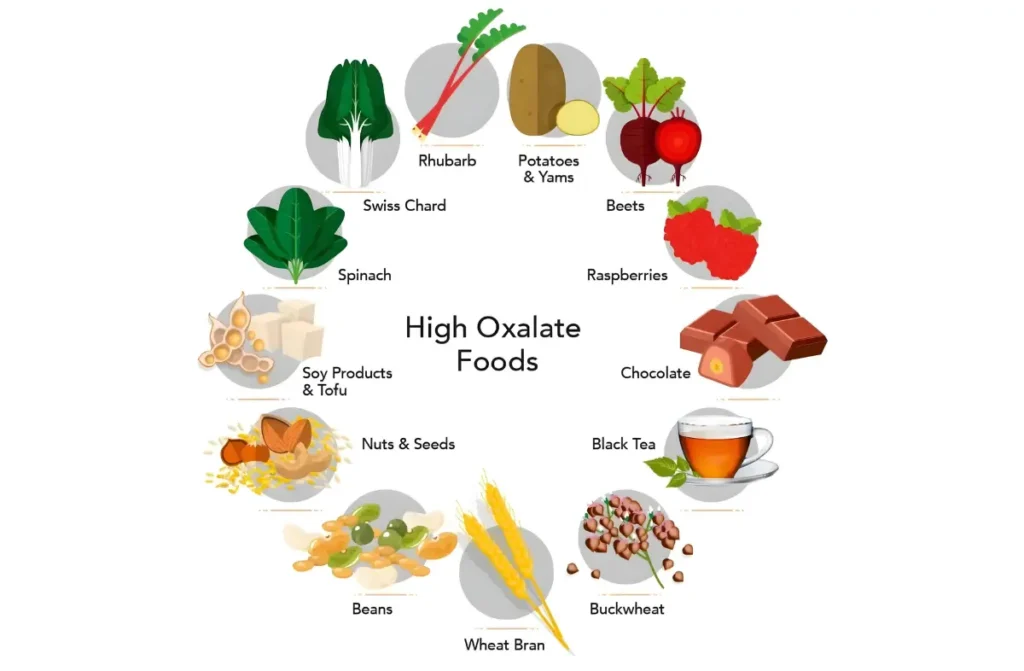“Have you ever wondered why kidney stones form and how you can prevent them? If you’ve had kidney stones in the past or are just concerned about your kidney health, you’re not alone. Many people struggle with kidney stones and wonder how to avoid the pain and discomfort associated with them. In this guide, we’ll walk you through everything you need to know about preventing kidney stones, so you can enjoy life without worrying about kidney issues.”
Understanding Kidney Stones
“Let’s start by understanding what kidney stones are and how they form. Kidney stones are hard deposits that develop in the kidneys when minerals and salts in the urine become concentrated. You might be asking, ‘Why did I get kidney stones, and how can I avoid them?’ The most common causes are dehydration, eating too much salt, excessive animal protein, and even genetic factors.”

How to Prevent Kidney Stones Naturally
“So, how can I prevent kidney stones naturally?” The good news is, there are steps you can take today to reduce your risk. Let’s talk about the lifestyle changes that can help prevent kidney stones:
- Stay Hydrated “The most important thing you can do to prevent kidney stones is drink plenty of water. Dehydration causes minerals to build up, forming stones.”
- Aim for 8-12 cups of water a day.
- If you sweat a lot or live in a hot climate, drink more water.
- Watch for pale yellow urine, which indicates you’re well-hydrated.
- Aim for 8-12 cups of water a day.
- Eat More Calcium-Rich Foods “It might sound surprising, but calcium can actually help prevent kidney stones by binding to oxalates and preventing stones from forming in the kidneys.”
- Include dairy products like milk, cheese, and yogurt.
- Eat leafy greens such as kale and broccoli.
- Include canned fish like sardines or salmon.
- Include dairy products like milk, cheese, and yogurt.
- “Avoid calcium supplements unless recommended by your doctor, as they may increase the risk of stones.”
- Limit Sodium Intake “Too much salt can cause your kidneys to work harder, increasing your risk of kidney stones.”
- Cut down on processed foods, fast food, and salty snacks.
- Check food labels for low-sodium options.
- Avoid adding extra salt to your meals.
- Cut down on processed foods, fast food, and salty snacks.
- Avoid High-Oxalate Foods “Certain foods can increase your risk of kidney stones due to high oxalate content. By limiting these foods and balancing them with calcium-rich options, you can reduce your risk.”
- Foods high in oxalates include spinach, chocolate, and sweet potatoes.
- Combine these foods with calcium-rich foods to minimize the risk.
- Foods high in oxalates include spinach, chocolate, and sweet potatoes.
- Reduce Animal Protein Intake “A diet high in animal protein can increase uric acid, contributing to kidney stone formation.”
- Eat less red meat, poultry, and seafood.
- Try plant-based proteins like beans and lentils instead.
- If you do eat animal protein, keep it in moderation.
- Eat less red meat, poultry, and seafood.
Preventing Kidney Stones with Medication
“Can medication help prevent kidney stones?” If you’re at high risk or prone to kidney stones, your doctor might suggest medications to help. Some common medications used to prevent kidney stones include:
- Thiazide diuretics to reduce calcium in your urine.
- Potassium citrate to balance the pH of your urine and prevent stones.
- Allopurinol to reduce uric acid levels.
“Be sure to talk to your doctor about the right medication for you and if there are any alternatives.”
Dietary Chart for Kidney Stone Prevention
“Here’s a simple dietary chart to help you prevent kidney stones:”
| Meal | Recommended Foods | Restricted Foods | Tips & Suggestions |
| Early Morning | Warm water with lemon, 5-6 soaked almonds | Sugary drinks, caffeinated beverages | Drink a glass of water first thing |
| Breakfast | Oatmeal with chia seeds and berries, avocado toast | Processed cereals, excess salt or sugar | Include fiber-rich whole grains |
| Mid-Morning Snack | Coconut water, cucumber or carrot sticks | Salty snacks, sugary fruit juices | Hydrate naturally with sugar-free drinks |
| Lunch | Brown rice, grilled chicken or fish, steamed veggies | Red meat, fried or spicy foods | Eat a balanced meal with lean protein |
| Dinner | Whole wheat chapati, vegetable curry, spinach salad | High-fat dairy products, excess salt | Eat light, fiber-rich meals |
| Bedtime | Warm water with turmeric | Sugary desserts, caffeinated drinks | Stay hydrated but avoid large intake before bed |
Worst Foods for Kidney Stones
“If you’re at risk for kidney stones, avoid these foods:”
- High-oxalate foods: Spinach, chocolate, nuts, and beets.
- High-sodium foods: Processed foods, canned soups, and fast food.
- High-purine foods: Red meats, shellfish, and organ meats.
- Sugary drinks: Soda, sweetened teas, and energy drinks.
- Excessive dairy: Too much dairy can contribute to calcium stones.
Supplements to Prevent Kidney Stones
“Certain supplements can support your efforts to prevent kidney stones:”
- Magnesium to lower oxalate absorption.
- Potassium citrate to prevent stones by neutralizing acid.
- Vitamin B6 (Pyridoxine) to reduce oxalate levels.
- Probiotics to support gut health and reduce oxalate formation.
“Always consult your doctor before taking new supplements.”
Conclusion
“So, how can I prevent kidney stones?” With proper hydration, a balanced diet, and lifestyle changes, you can significantly reduce your risk. Avoid high-oxalate foods, limit sodium, and incorporate more calcium-rich foods into your meals. If necessary, consult your doctor about medications or supplements to help prevent kidney stones. By taking control of your health, you can enjoy a kidney stone-free life.
For more personalized advice and guidance, reach out to your healthcare provider. Keep your kidneys healthy with these preventive steps today!
Read Also : Home Remedies for Kidney Stones

